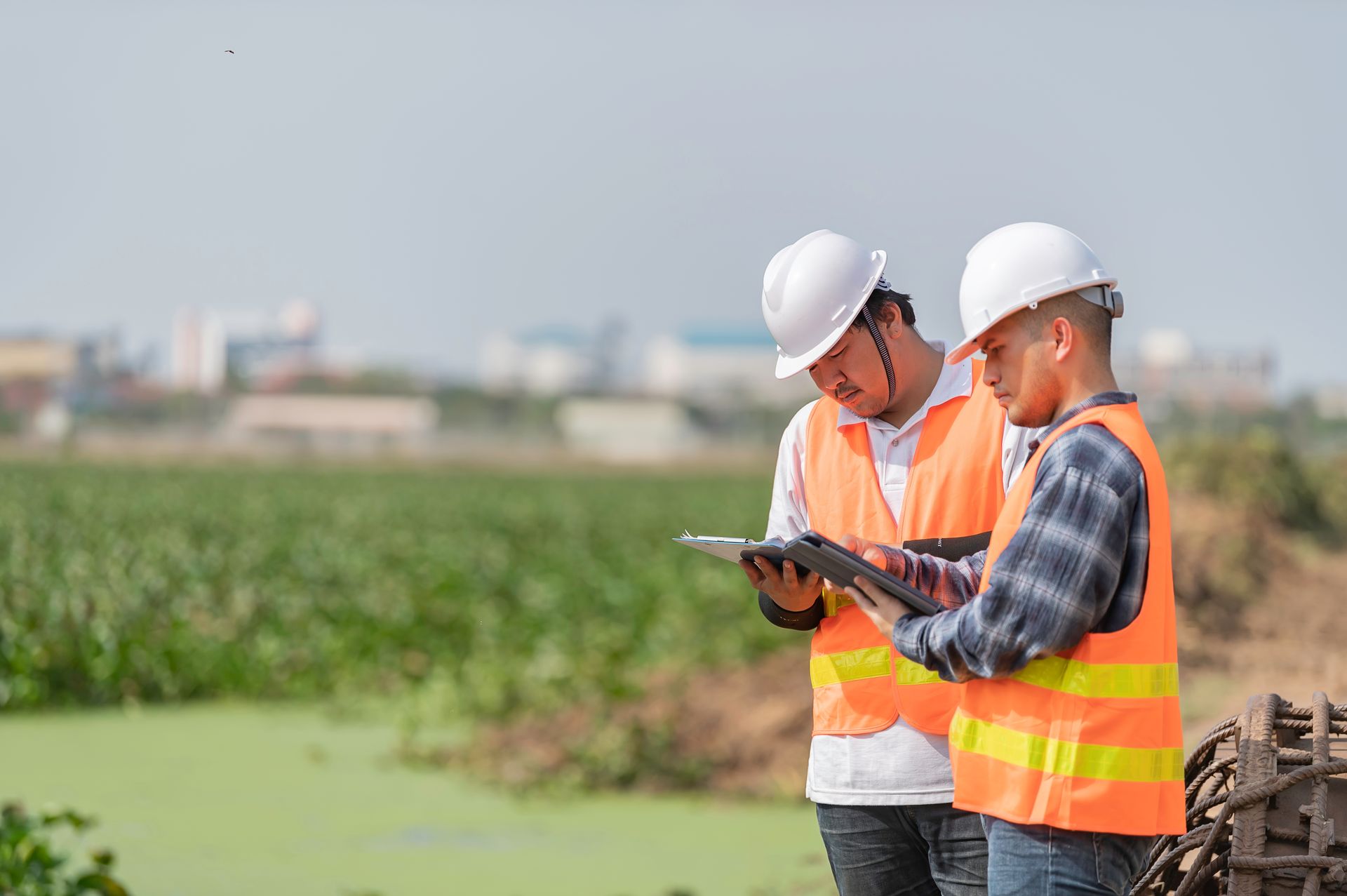Red tape in the construction industry is unavoidable. Whether it’s applying for a loan, permitting rights, rezoning, or even rebates and tax credits, an environmental assessment of some kind will probably be required.
However, the role of the environmental consultant is not all about navigating red tape. Like a good accountant, an environmental consultant can advise you on many areas of your business, including foundation design and unseen environmental risks.
Let’s discuss the many hats that an environmental consultant wears in the construction trade and how your business can benefit from hiring a personal consultant.
The Role of the Environmental Consultant in Construction
1. Site Assessment and Analysis
One of the chief responsibilities of an environmental consultant is to conduct thorough site assessments to determine any risks and liabilities.
Depending on the size of a worksite and its disturbance of the land, the drafting of a stormwater management plan may be required. From stormwater runoff and erosion to hazardous waste materials and shifting slopes, a site assessment makes your work zone safer and protected from liability.
A general analysis includes assessing general soil quality, water resources, vegetation, erosion and sediment control, and any unseen impact on nearby ecosystems.
2. Regulatory Compliance
Environmental consultants are well-versed in local, state, and federal regulations, ensuring that construction activities comply with all applicable laws. This includes obtaining necessary permits and approvals to proceed with projects legally so you don’t incur any financial damages.
3. Environmental Impact Assessment
Environmental impact assessments (EIAs) are comprehensive evaluations that are more detailed than general site assessments and gauge how a construction project may affect the surrounding environment. Environmental consultants analyze the potential consequences on air and water quality, wildlife habitats, and overall biodiversity. This assessment aids in identifying ways to mitigate adverse effects and promotes sustainable development.
4. Sustainable Construction Practices
Promoting sustainability is a key aspect of an environmental consultant’s role. That’s why environmental consultants will collaborate with architects, engineers, subcontractors, and crew members to integrate sustainable practices into the project design and execution. This may involve recommending energy-efficient technologies, energy-efficient materials, and waste-reduction strategies.
5. Waste Management and Recycling
Construction projects generate significant amounts of waste, which is bad for the environment and increases costs. Environmental consultants work to develop waste management plans, emphasizing recycling and proper storage/disposal methods. Implementing effective waste management strategies minimizes the project’s environmental footprint and also protects your site from liability.
6. Worker Health and Safety Protection
Sustainable building practices are good not only for the environment but also for workers. Between choosing safer materials, identifying any known pathogens or contaminants, and protecting worksites from geological hazards, environmental consultants can draft construction safety plans that make worksites safer for crews.
Benefits of Hiring an Environmental Consultant
- Reduce liabilities and fines from regulatory authorities
- Promote sustainable building practices that increase reputation, marketability, and final pricing
- Protect local ecosystems from construction impacts
- Reduce onsite waste
- Reduce building risk from ecological or geological hazards
- Protect workers from ecological or geological hazards
Tips for Hiring an Environmental Consultant
Finding the right enviornmental consultant is important for any construction project. Be sure to find one that specializes in your field of construction, and that is certified by a proper agency.
Use customer reviews and work experience to sort through potential candidates and interview a few that best meet your company’s needs.
While no one wants to add extra costs to their bottom line, you’ll find that hiring an environmental consultant is one of the most fiscally wise decisions you will ever make.
Frequently Asked Questions (FAQs)
When should a construction project involve an environmental consultant?
It’s advisable to involve an environmental consultant in the early planning stages of a construction project to assess the site, identify potential environmental risks, and ensure compliance with regulations.
How do environmental consultants contribute to sustainable construction practices?
Environmental consultants collaborate with construction teams to integrate sustainable practices, including energy-efficient technologies, eco-friendly materials, and waste reduction strategies, into project plans.
Can environmental consultants help with obtaining permits for construction projects?
Yes, environmental consultants are well-versed in regulatory requirements and assist in obtaining necessary permits and approvals to ensure legal compliance for construction projects.
What is the purpose of an environmental impact assessment (EIA)?
An environmental impact assessment evaluates how a construction project may affect the surrounding environment, including air and water quality, biodiversity, and ecosystems. It helps identify potential risks and mitigation strategies.
How do environmental consultants address water conservation on construction sites?
Environmental consultants develop water conservation strategies, recommending technologies such as rainwater harvesting systems, efficient irrigation methods, and water-recycling solutions to minimize water consumption during construction.
Are environmental consultants involved in post-construction monitoring?
Yes, environmental consultants may be involved in post-construction monitoring to assess the ongoing environmental impact, ensure continued compliance with regulations, and address any unforeseen issues that may arise.


